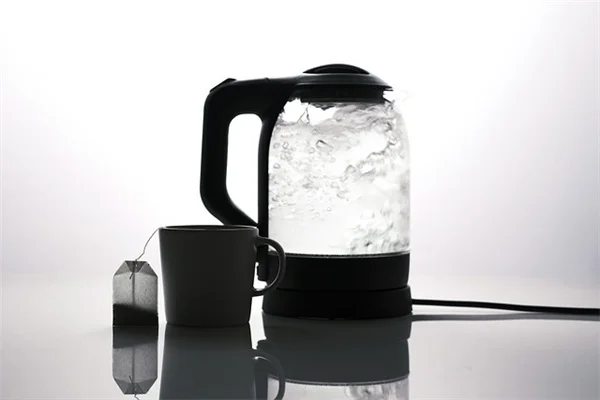Zepbound vs Wegovy: Which Weight Loss Drug Works Better? (2024 Study Results)
Zepbound vs Wegovy - which one actually helps you lose more weight? The answer is clear: Zepbound leads to significantly greater long-term weight loss according to Eli Lilly's latest clinical trial. Here's the deal - 31% of Zepbound users lost at least 25% of their body weight compared to just 16% on Wegovy. That's nearly double the effectiveness!We dug into the 72-week study involving 751 participants, and the numbers don't lie. On average, Zepbound users shed about 50 pounds versus Wegovy's 33 pounds. But here's what you really need to know - these medications work best when combined with healthy eating and regular exercise. They're powerful tools, not magic bullets. Let's break down what this means for your weight loss journey.
E.g. :Weekend Warriors: How 1-2 Days of Exercise Can Boost Your Health
Advertisement
- 1、Zepbound vs Wegovy: The Ultimate Weight Loss Showdown
- 2、Choosing Your Weight Loss Partner
- 3、The Nuts and Bolts of Weight Loss Medications
- 4、The Lifestyle Factor: Drugs Aren't Magic
- 5、Beyond the Scale: Unexpected Benefits
- 6、More Than Just Numbers: Understanding the Human Side
- 7、The Cost Factor: Breaking Down the Dollars
- 8、Social Perceptions: The Good, The Bad, The Ugly
- 9、Maintenance Mode: Keeping the Weight Off
- 10、Looking Ahead: What's Next in Weight Loss Science
- 11、FAQs
Zepbound vs Wegovy: The Ultimate Weight Loss Showdown
Clinical Trial Results That'll Make You Do a Double Take
Guess what? Eli Lilly just dropped some mind-blowing clinical trial results comparing Zepbound and Wegovy. After 72 weeks of testing with 751 participants across the U.S. and Puerto Rico, the numbers don't lie:
| Metric | Zepbound | Wegovy |
|---|---|---|
| Participants losing significant weight | 20% | 14% |
| Achieving 25%+ body weight loss | 31% | 16% |
| Average weight loss | 50 lbs | 33 lbs |
Now here's something that might surprise you - why does Zepbound seem to work better? The secret sauce is in how it targets two hormone receptors (GLP-1 and GIP) compared to Wegovy's single receptor approach. This double whammy helps you feel full faster and keeps food moving slower through your system.
Real People, Real Results
Let me paint you a picture of who participated in this groundbreaking study. We're talking about adults struggling with weight issues - some overweight, others with obesity - all dealing with at least one extra health challenge like high blood pressure or sleep apnea. But here's the kicker: none had diabetes, which makes these results extra interesting for the general population.
The participants received either Zepbound or Wegovy at the highest dose they could tolerate. For 72 weeks (that's over a year, folks!), researchers tracked every pound lost. The outcome? Zepbound users typically shed about 17 more pounds than their Wegovy counterparts. That's like losing a medium-sized dog worth of weight!
Choosing Your Weight Loss Partner
 Photos provided by pixabay
Photos provided by pixabay
Which Medication is Right For You?
Here's where things get personal. Should you automatically choose Zepbound because it showed better results? Not so fast! Dr. Mir Ali, a weight loss surgery expert, reminds us that individual responses vary wildly. Some people might see better results with Wegovy because their bodies respond differently. Plus, there's the insurance factor - your plan might cover one but not the other.
Let me share a quick story about my friend Sarah. She tried both medications (not in the trial, just through her doctor) and found Wegovy worked better for her with fewer side effects. Goes to show that clinical trial averages don't always predict individual success.
The Accessibility Challenge
Dr. Dan Azagury from Stanford hits us with some real talk: "Right now, just getting any of these medications is a win." Between insurance hurdles and supply shortages, you might not always have the luxury of choice. We're living in strange times when weight loss drugs are both revolutionary and frustratingly hard to get.
Here's a pro tip: if your insurance gives you grief, ask your doctor about patient assistance programs. Many pharmaceutical companies offer discounts that could make these treatments more affordable.
The Nuts and Bolts of Weight Loss Medications
How These Miracle Workers Operate
All these injectable medications - Zepbound, Wegovy, Ozempic, Mounjaro - they're like little chemical messengers playing tricks on your hunger signals. They mimic your body's natural GLP-1 hormone, telling your brain "Hey, we're full!" even when you've barely touched your salad.
But Zepbound and Mounjaro (both from Eli Lilly) have an extra trick up their sleeve with tirzepatide. This active ingredient doesn't just stop at GLP-1 - it also activates GIP receptors. It's like having two security guards at the door of your stomach instead of one!
 Photos provided by pixabay
Photos provided by pixabay
Which Medication is Right For You?
Now, I won't sugarcoat it - these medications come with potential side effects ranging from annoying (nausea) to downright uncomfortable (constipation). But here's the silver lining: most people adjust after a few weeks as their bodies get used to the medication.
Think of it like learning to ride a bike. At first, you might wobble and feel unsure (hello, nausea!), but soon you'll be cruising along smoothly. The key is starting with low doses and gradually increasing - your future self will thank you for taking it slow.
The Lifestyle Factor: Drugs Aren't Magic
Medication is Just One Piece of the Puzzle
Here's a reality check that might sting a bit: no weight loss drug works miracles by itself. You can't just take Zepbound and keep eating pizza for every meal (trust me, I wish!). These medications work best when paired with healthy eating and regular movement.
Picture this: the medication is like having a really supportive coach, but you still need to show up to practice. That means:
- Filling half your plate with veggies
- Finding physical activities you actually enjoy
- Getting enough sleep (yes, it matters!)
- Managing stress without turning to food
The Long Game of Weight Management
Let's address the elephant in the room: these aren't quick fixes. Dr. Ali puts it bluntly: "Many patients regain significant weight after stopping." It's like stopping blood pressure medication - your body tends to revert to its old ways.
This leads to an important question: Are you ready for what might be a lifelong commitment? For most people, maintaining weight loss means staying on medication indefinitely or considering surgical options. There's no shame in this - we don't judge people for taking daily thyroid medication, right? Weight management is healthcare too.
Beyond the Scale: Unexpected Benefits
 Photos provided by pixabay
Photos provided by pixabay
Which Medication is Right For You?
While we're focused on weight loss, these medications are quietly racking up other health benefits. Recent studies suggest they might:
- Reduce sleep apnea episodes (bye-bye, snoring!)
- Lower risks of heart disease
- Potentially decrease cancer risks
- Help with rheumatoid arthritis symptoms
The FDA even gave Wegovy the green light to advertise heart health benefits in 2024. Who knew a weight loss drug could do so much heavy lifting?
The Future of Weight Management
As research continues, we're learning more every day about how these medications can transform lives. Eli Lilly plans to publish their full findings soon, and I'll be keeping my eyes peeled for updates at next year's medical conferences.
One thing's for sure - whether you choose Zepbound, Wegovy, or another option, we're living in an exciting time for weight management science. Just remember to work closely with your healthcare provider to find what works best for your unique body and lifestyle.
More Than Just Numbers: Understanding the Human Side
The Emotional Rollercoaster of Weight Loss
You know what they never show in those before-and-after photos? The emotional journey that comes with significant weight loss. While the clinical trials focus on pounds lost, real people report unexpected changes in their mental health and self-image. Some describe feeling like strangers in their own bodies, while others experience a surge in confidence they never expected.
Take my neighbor Jake, who lost 45 pounds on Wegovy last year. He told me, "The weirdest part wasn't fitting into smaller jeans - it was realizing people treated me differently at work meetings." This social aspect of weight loss rarely gets discussed in medical studies, but it's just as important as the numbers on the scale.
When the Scale Lies: Non-Scale Victories
Let's talk about what really matters beyond the numbers. Have you ever noticed how your favorite chair suddenly feels roomier? Or how you can play with your kids without getting winded? These non-scale victories often matter more than any percentage of body weight lost.
Here's a quick list of unexpected wins people report:
- Being able to cross your legs comfortably
- No longer needing seatbelt extenders on planes
- Finding energy to say "yes" to social invitations
- Rediscovering your collarbones (they were there all along!)
The Cost Factor: Breaking Down the Dollars
Insurance Maze: Navigating Coverage
Now let's tackle the elephant in the room - why do these miracle drugs cost so darn much? Without insurance, you're looking at $1,000+ per month for either medication. The brutal truth? Many insurance plans still consider weight loss medications "cosmetic" rather than essential healthcare.
But here's some good news - the landscape is changing fast. More employers are adding coverage as they recognize obesity's impact on workplace productivity and healthcare costs. My tip? Call your insurance provider with the exact medication name and ask about prior authorization requirements. Sometimes all it takes is the right paperwork from your doctor.
Creative Ways to Afford Treatment
When my cousin couldn't get insurance approval, she discovered several options that might help you too:
- Manufacturer discount programs (often saving 50-75%)
- Health savings account (HSA) or flexible spending account (FSA) dollars
- Some telehealth platforms offering lower cash prices
- Clinical trials (you might qualify for free treatment)
Remember that compounding pharmacies are not a safe alternative - stick with FDA-approved medications from reputable sources.
Social Perceptions: The Good, The Bad, The Ugly
Dealing with "Easy Way Out" Comments
Ever heard someone say, "You're cheating by using medication"? Let me tell you - that's about as helpful as a screen door on a submarine. The truth? Managing weight is complex, and these medications simply level the playing field for people whose biology works against them.
Next time someone makes that comment, try this response: "Actually, I'm using modern medicine to treat a medical condition - just like people take insulin for diabetes or statins for high cholesterol." It usually shuts down the conversation pretty quick.
The Celebrity Effect: Separating Fact from Fiction
With every A-lister rumored to be on these drugs, it's easy to get unrealistic expectations. Celebrities have teams of nutritionists, trainers, and chefs - their results don't reflect typical experiences. The real magic happens for everyday people regaining their health, not Hollywood stars fitting into sample sizes.
Fun fact: One study found that for every celebrity weight loss story, searches for these medications spike by 300%. But here's what they don't show - the months of gradual progress, the plateaus, the lifestyle changes happening behind the scenes.
Maintenance Mode: Keeping the Weight Off
Transitioning from Weight Loss to Maintenance
What happens when you reach your goal weight? Many doctors recommend staying on a lower "maintenance dose" rather than stopping completely. Think of it like maintaining a garden - you don't stop watering the plants just because they've bloomed.
Here's a comparison of typical approaches:
| Strategy | Zepbound Users | Wegovy Users |
|---|---|---|
| Average maintenance dose | 5-10mg weekly | 1.7-2.4mg weekly |
| Typical monitoring | Monthly check-ins | Bi-monthly check-ins |
| Common adjustments | Dose tweaks based on hunger | Combining with other therapies |
Building Sustainable Habits
The medication gives you a powerful tool, but lasting change comes from building new neural pathways. It's about creating routines that stick - like keeping cut veggies at eye level in your fridge or scheduling walking meetings at work.
Pro tip from my nutritionist friend: "Don't try to overhaul everything at once. Start with one small change each month - maybe swapping soda for sparkling water or adding 10 minutes of movement daily. Small wins create big results over time."
Looking Ahead: What's Next in Weight Loss Science
Oral Options Coming Down the Pipeline
Good news for needle-phobes! Several companies are developing pill versions of these medications that could be available within a few years. Early trials show promising results, though they may require taking multiple pills daily compared to weekly injections.
Wouldn't it be great to have options? Some people prefer the "set it and forget it" nature of injections, while others would gladly trade daily pills for no needles. The future looks bright for personalized weight management.
Combination Therapies on the Horizon
Researchers are exploring exciting combinations like:
- GLP-1 medications with muscle-building compounds
- Time-release formulations for steadier effects
- Medications targeting specific genetic profiles
One experimental approach even uses smart pens that adjust doses automatically based on your body's response. How cool is that? The science moves fast, so stay tuned for breakthroughs that could make today's treatments look primitive.
E.g. :Zepbound vs. Wegovy: Differences Between Weight-Loss ...
FAQs
Q: How much more effective is Zepbound compared to Wegovy?
A: The clinical trial results show Zepbound is significantly more effective than Wegovy for long-term weight loss. Here's what we know: 31% of Zepbound users achieved at least 25% body weight loss compared to just 16% on Wegovy. That's nearly twice as effective! On average, participants lost about 50 pounds with Zepbound versus 33 pounds with Wegovy. The secret lies in how Zepbound targets two hormone receptors (GLP-1 and GIP) compared to Wegovy's single-receptor approach. This dual action helps you feel full faster and slows digestion more effectively.
Q: What makes Zepbound different from Wegovy?
A: While both are injectable weight loss medications, Zepbound has a unique advantage. It contains tirzepatide which works on two hormone pathways (GLP-1 and GIP), whereas Wegovy's semaglutide only affects GLP-1. Think of it like having two brakes on your appetite instead of one. This dual mechanism helps explain why Zepbound users typically lose more weight. However, individual responses vary - some people might tolerate Wegovy better or see comparable results. Your doctor can help determine which option suits your body and health profile best.
Q: Are weight loss drugs like Zepbound and Wegovy safe to use long-term?
A: Current research shows both Zepbound and Wegovy are generally safe for long-term use, but they do come with potential side effects. The most common include nausea, constipation, and abdominal discomfort, which often improve after the first few weeks. More serious (but rare) gastrointestinal issues can occur. What's crucial to understand is that these medications are designed for chronic weight management - most people need to continue taking them to maintain results. As with any medication, you should discuss the risks and benefits with your healthcare provider, especially if you have other medical conditions.
Q: Can I stop taking Zepbound or Wegovy after reaching my goal weight?
A: Here's the hard truth - stopping these medications often leads to weight regain. The clinical evidence shows that obesity is a chronic condition requiring long-term management, much like high blood pressure or diabetes. Many patients regain significant weight after discontinuing treatment. That said, some people may be able to transition to a lower maintenance dose or combine medication with lifestyle changes. The key is working closely with your doctor to develop a sustainable plan. Remember, these drugs work best when paired with healthy eating and regular physical activity.
Q: How do I know if I'm a good candidate for Zepbound or Wegovy?
A: These medications are typically prescribed for adults with obesity (BMI ≥30) or overweight (BMI ≥27) with weight-related conditions like high blood pressure or sleep apnea. The recent trial specifically excluded people with diabetes, so these results apply to non-diabetic individuals. The best way to know if you're a candidate is to consult with a healthcare provider who can evaluate your complete health profile, current medications, and weight loss goals. They'll also consider factors like insurance coverage and medication availability in your area, as shortages have been common.







